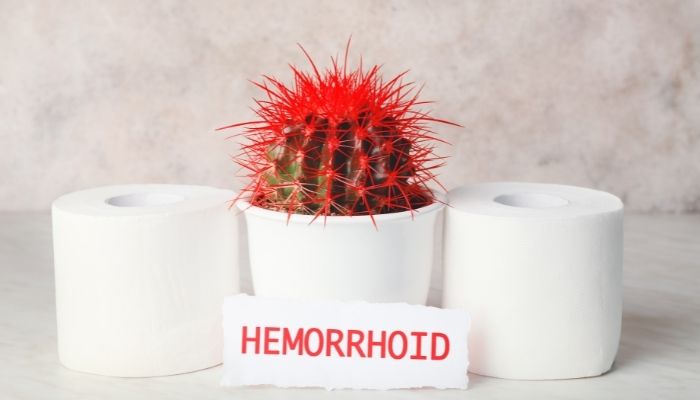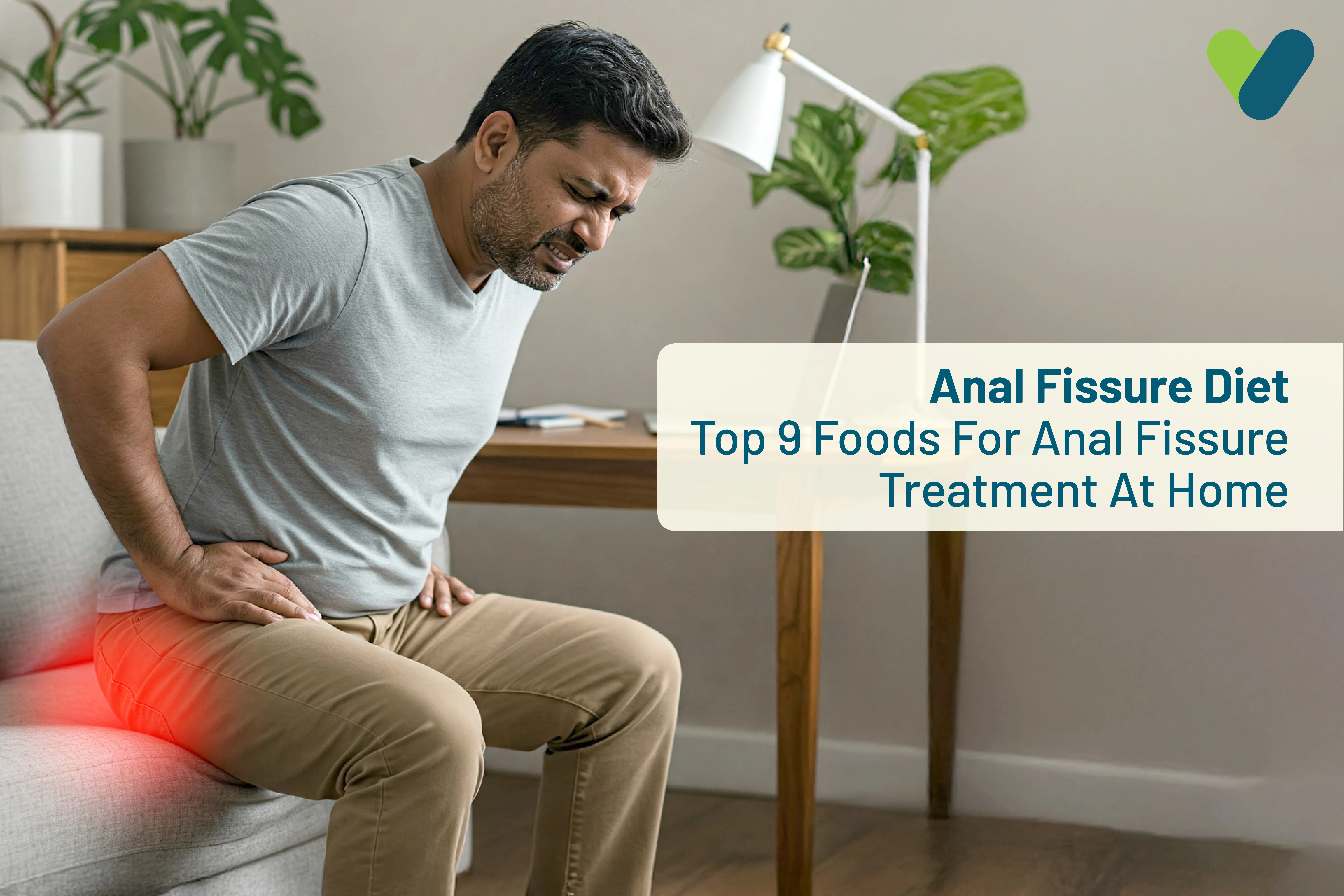Best Food Diet For People With Anal Fissures
Rajat is a senior bank executive who is 40 years old. He was facing severe issues with his bowel movements every day and experienced sharp pain while passing stool. One day, he saw some bleeding and got alarmed. He immediately consulted his close friend who is a doctor and she told him how he had anal fissures. Are you also looking for anal fissure treatments? If the answer is yes, then you should know that this is a common issue that affects many people. They are usually not serious and you can always go for natural treatments at home with specific fissure healing foods. The fissure is a tear in the anus lining which may lead to pain and bleeding while passing stools. Fissures usually take place due to hard and dry stools and other reasons including excessive straining during bowel movements, constipation, and a condition known as inflammatory bowel disease. Fissures generally heal on their own within a span of four to six weeks as per studies.
Note that doctors often prescribe a diet after fissure surgery or the after fissure surgery diet as it is sometimes called. In this case, you must have already undergone surgery if the condition was slightly serious and now you require a healing diet to get back in shape. Here are some foods that will help you kick-start your anal fissure treatment at home itself.
1. Papayas
Papayas have valuable enzymes which may improve digestion considerably. Several studies have shown how papayas may improve overall bloating and constipation along with hydrating the body simultaneously.This naturally keeps dry stools at bay in turn. However, consume them in moderation since they also contain fiber in high amounts.
2. Lemons
They are always superfoods in this case. You will get rich and useful Vitamin C from lemons, which functions as an antioxidant helping with improved health of the skin and collagen synthesis.Vitamin C also helps immensely with healing wounds. You can even squeeze your lemon in tea or water.
3. Bananas
Bananas contain sufficient fiber and will help in bypassing constipation. Most people will report better frequencies and softer stools after upping their fiber intake.Bananas should ideally be ripe enough to prevent any aggravation of constipation.
4. Oatmeal
Oatmeal also comes with soluble fiber which helps in water retention of the stools. It may help in combating drier stools which are major reasons behind fissures. Consuming oatmeal will soften your stools, making them easier to pass down regularly.Oatmeal also comes with anti-inflammatory compounds known as avenanthramides. This also helps immensely in swift healing.
5. Turmeric
Turmeric contains curcumin which is an active ingredient with antioxidant and anti-inflammatory attributes along with other medicinal characteristics. Combining black pepper and turmeric helps in enhancing overall curcumin absorption.
Topical application of turmeric may also contribute towards healing wounds and other skin ailments.
6. Ghee
Ghee is a suitable Ayurvedic component that helps with combating fissures. It has butyrate acid, a specific fatty acid that helps with better digestion and this also helps with the treatment of irritable bowel syndrome and diarrhea.Ghee is also called a completely natural laxative. A teaspoon of it in water or milk may help considerably with bowel movements.
7. Milk
Milk is another suitable home remedy for healing fissures. It is taken to combat constipation.Milk with higher fat contains CLA (conjugated linoleic acid) and this may help in reducing overall inflammation.
8. Food Items with Probiotics
Curd is strongly emphasized in Ayurvedic practices for helping in boosting the digestive tract and ensuring painless and regular bowel movements.This is because of probiotics and you should consume yogurt or other options such as Kimchi, Miso, and Sauerkraut.
9. Legumes
Legumes include lentils, chickpeas, and beans which contain useful zinc. This is a mineral that helps with healing wounds. Deficiencies in zinc will help greatly with injuries to tissues. Sprouting, soaking, and heating legumes before consumption may help in enhancing zinc absorption.Legumes contain handsome amounts of fiber which also helps in softening the stools for combating anal fissures. Topical zinc application may also help with recovery and lower discomfort.
Effective Home Care Tips for Anal Fissure Health Relief:
- Use stool softeners or suitable medication as prescribed by your doctor.
- Sitz baths for a few minutes after completing your bowel movements.
- Scaling up your overall consumption of fluids.
- Consume a fiber-based supplement like psyllium husk for instance.
- Add more workouts and exercises into your daily routine.
- Wearing cotton underwear that is not excessively tight.
The Bottom Line
In case your fissures do not heal or recover within eight weeks, they may be taken as chronic. At this juncture, consult your doctor since surgery may be needed. They may also want to diagnose and test for other specific causes.Related :








